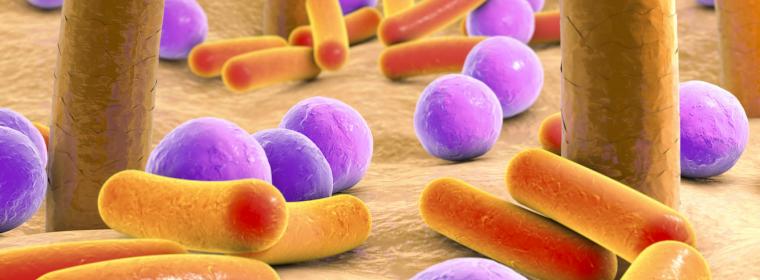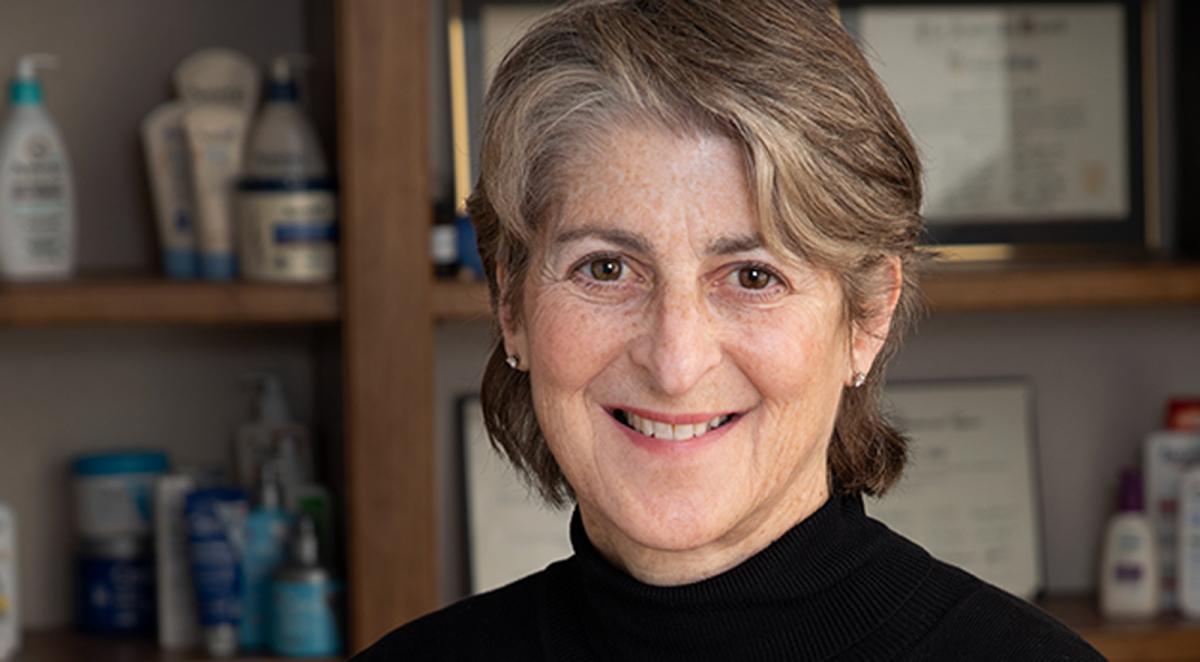
The newest buzzword on skincare product labels is microbiome. Everyone’s new formulations are microbiome-friendly, containing prebiotics, probiotics or postbiotics. Is all of this enthusiasm really warranted? Is there ample scientific proof of benefit from these claims or is it just hype, a way to increase market share?
What is the microbiome? Our skin is our barrier to the outside world. It is an incredible protective layer that prevents the invasion of foreign pathogens while at the same time, is home to an invisible ecosystem of microorganisms. As a matter of fact, over a trillion microbes, bacteria, fungi, protozoa and viruses, reside on the skin of every one of us. Some of these microorganisms do no harm and are called commensal organisms. Pathogens, on the other hand, are organisms that may be harmful. This community of microorganisms that lives on our body surface is called the microbiota. The microbiome is the genetic material of all the microorganisms that live on our bodies. Today, however, these two terms have largely become interchangeable.
Here lies the challenge of skincare claims regarding the microbiome.
First and foremost, the human microbiome has yet to be universally defined. No two people have the exact same microbiome as it varies from person to person. It varies based on age, sex, and season.. It even varies by body location on any given individual. So the microbiome on the forehead will differ from the microbiome in that same individual's nose crease, which will differ from the microbiome on their feet. In addition, it is very difficult to permanently change the microbiome. Even antibacterial cleansers have not been proven to permanently change the microbiome.
Secondly, it is illegal to make a drug claim for a cosmetic. That is to say, manufacturers cannot legally claim that their product changes the structure or function of the skin, because that would classify the product as a drug and necessitate that product getting pre-market approval from the Food & Drug Administration (FDA). In an attempt to comply with these laws, manufacturers might use the word microbiome friendly on the label, implying that the use of this cosmetic does not alter the microbiome. Well that’s an easy thing to prove, as even cleansers don’t permanently change the microbiome. They may temporarily alter it after washing but the microbiome quickly reestablishes itself.
Skincare products with the words prebiotic, probiotic or postbiotic on them are now found everywhere. All used to imply that they benefit the microbiome.
What are prebiotics? Think of prebiotics as food or fertilizer for the microbiome. Prebiotics are plant based sugars and oils that are included in skincare creams. By definition they supposedly only promote the growth of the beneficial organisms while preventing harmful bacteria from growing on the skin. Of course, there is no science that proves these very same compounds aren’t also enjoyed by unwanted pathogens.
It is not uncommon to see prebiotics marketed for oral consumption. These non-digestible sugars are found in grains like whole wheat and oats, and other fruits and vegetables like onions, garlic, and blueberries. Prebiotic supplements are marketed as beneficial food for the microbiome in the gut but unfortunately, there is no science that shows prebiotics taken orally have any benefit on the skin..
What are probiotics? Probiotics are live microorganisms. Probiotics have not yet been shown to be effective when applied topically especially due to the individual variation of the microbiome. They may be formulated into creams or sprays for topical application. Lactobacillus, the common bacteria found in yogurt, is a common bacteria that may be incorporated into a skincare cream and applied topically onto the skin surface. Unfortunately, true probiotic skin products must be refrigerated as live organisms like lactobacillus cannot survive at room temperature. In addition, skincare products contain preservatives, ingredients that are added to the formulation to destroy living microorganisms to prevent contamination.You will be hard pressed to find a true probiotic containing skincare cream on the skincare aisles.
What are postbiotics? Postbiotics are compounds like small protein and sugar molecules, enzymes, and acids that are by-products of fermenting bacteria. The use of postbiotics in skincare is well documented. Lactic acid is a well known postbiotic, an ingredient that has been added to moisturizers for decades to aid in the desquamation of dead cells from the skin surface.
Although there does seem to be evidence that skin disease and even systemic disease may be affected by the microbiome, research on the skin microbiome is still in its infancy. Postbiotics have been used successfully in over-the-counter skincare products for many years. But when it comes to pre and probiotics, unfortunately, to date, there is no proven benefit of applying cosmetic products that claim to contain them. In regard to the microbiome and all of these biotics, marketing is way ahead of science!





